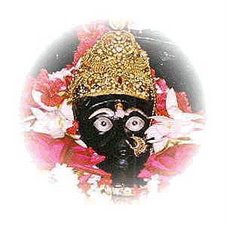Violence under the sun
RANJITA BISWAS

SOMETIME ago, while addressing a meeting of chief ministers of six states affected by the Maoist movement, Prime Minister Manmohan Singh said that the problem of Naxalism was the single biggest internal security challenge faced by the country.
Socio-economic discrimination
Reports in the media often quote intelligence sources warning that armed Naxalites are spreading fast in the rural heartland — ample proof that the movement that began in Naxalbari village of West Bengal in 1967 is far from dying. In fact, after a lull, the movement has picked up momentum again.
It is not difficult to understand that the germ of this armed struggle, fashioned after the Maoist dictum 'power flows from the barrel of the gun', is ensconced in socio-economic discrimination and subsequent rebellion. Journalist-writer Diptendra Raychaudhuri's novel Seeing Through The Stones: A Tale From The Maoist Land is set against this background.
It is the story of the rise and fall of Mahendra Chamar, a Naxalite leader emerging from Dalit anger against atrocities. Interwoven are women who were his consorts, internecine rivalry within the Naxalite groups, landed gentry's conspiracy to hold onto power and Mahendra's deterioration as a victim of Alzheimer's disease. He ends up as a recluse who talks only to trees. But his legend as a leader survives among the poor of the land.
Real incidents and thinly disguised personalities dot the narrative and at times lend the novel a feel of non-fiction. It is understandable since, as a journalist, the author spent many years chasing the Maoist story. Undoubtedly he has gathered valuable insight into the ground realities, enough to venture into telling their story. Shortcomings
The narrative technique is like a movie script moving up and down between present, past and the future with chapters like, "The Present Continuous", "Glimpses of the Past" and "Glimpses of the Future".
But what could have been a telling account in the best tradition of a docu-drama, or even a political novel, is marred by some obvious shortfalls. First, there are too many characters and events, arranged as if in a slide-show, leaving little space for literary jouissance or analytical look into the characters and their circumstances to make for an absorbing novel.
Second, a certain unease with the language causes frequent falls on an uneven terrain. A few examples: Agnes beckoned her, leaving her in a state of flux like a sparrow approaching the grain lying near a peasant (pheasant?) (pg 14). Pascal's experienced eyes convey to his brain…. (pg 138): … he is imbibing his glass of vodka too fast. (pg 140).Telling moments
There are some telling moments, though: They chant at the end 'Long live Charu Mazumdar' without knowing who they are referring to, probably mistaking him for a god.
Or to show the utter contempt of the high caste to the low-caste: 'Mahendra Chamar?' Harry snorts exasperatedly, as if correcting the cop. 'Even that is repugnant. A lowborn Chamar's name cannot be Mahendra, which literally means Indra the great. Indra is the king of the gods and a Chamar cannot be named after him.'
And then there is the evocative moment when Mohan Ram's naïve question hits at the crux of the revolution seeking equality for all, so devastatingly articulated by Owell in his Animal Farm.
"What is this revolution?" Mohan Ram wondered aloud.
"A total change where there will be no rich, no poor…where everybody will be equal…"
"No poor?" Mohan Ram was sceptical "…then who will build houses for the babus?" It is a pity that an urge to put the Naxalite movement in perspective has not been done with more literary finesse.
Seeing Through The Stones: A Tale From The Maoist Land; Diptendra Raychaudhuri, Vitasta, Rs. 300.
The Hindu
source-resistanceindia.blogspot.com







2 comments:
dear Rodrigo,
please write in English.
regards
Ranjita Biswas is either biased or has faint knowledge about the wars being waged in the rural areas of Chattigarh,Jharkhand and Andhra Pradesh. Diptendra's books has shown a good appreciation of the issue. One feels as if transformed into the Naxal lands.
Rohit
Post a Comment